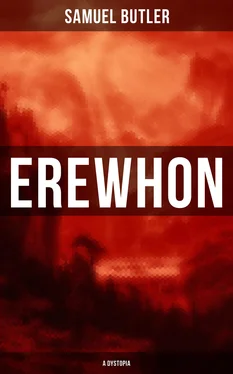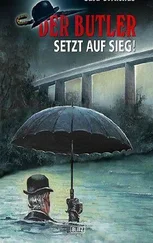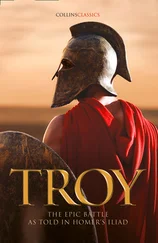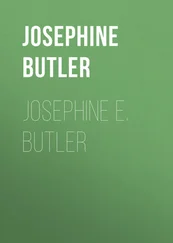I could not help speculating upon what might lie farther up the river and behind the second range. I had no money, but if I could only find workable country, I might stock it with borrowed capital, and consider myself a made man. True, the range looked so vast, that there seemed little chance of getting a sufficient road through it or over it; but no one had yet explored it, and it is wonderful how one finds that one can make a path into all sorts of places (and even get a road for pack-horses), which from a distance appear inaccessible; the river was so great that it must drain an inner tract—at least I thought so; and though every one said it would be madness to attempt taking sheep farther inland, I knew that only three years ago the same cry had been raised against the country which my master’s flock was now overrunning. I could not keep these thoughts out of my head as I would rest myself upon the mountain side; they haunted me as I went my daily rounds, and grew upon me from hour to hour, till I resolved that after shearing I would remain in doubt no longer, but saddle my horse, take as much provision with me as I could, and go and see for myself.
But over and above these thoughts came that of the great range itself. What was beyond it? Ah! who could say? There was no one in the whole world who had the smallest idea, save those who were themselves on the other side of it—if, indeed, there was any one at all. Could I hope to cross it? This would be the highest triumph that I could wish for; but it was too much to think of yet. I would try the nearer range, and see how far I could go. Even if I did not find country, might I not find gold, or diamonds, or copper, or silver? I would sometimes lie flat down to drink out of a stream, and could see little yellow specks among the sand; were these gold? People said no; but then people always said there was no gold until it was found to be abundant: there was plenty of slate and granite, which I had always understood to accompany gold; and even though it was not found in paying quantities here, it might be abundant in the main ranges. These thoughts filled my head, and I could not banish them.
Chapter II.
In the Wool-Shed
Table of Contents
At last shearing came; and with the shearers there was an old native, whom they had nicknamed Chowbok—though, I believe, his real name was Kahabuka. He was a sort of chief of the natives, could speak a little English, and was a great favourite with the missionaries. He did not do any regular work with the shearers, but pretended to help in the yards, his real aim being to get the grog, which is always more freely circulated at shearing-time: he did not get much, for he was apt to be dangerous when drunk; and very little would make him so: still he did get it occasionally, and if one wanted to get anything out of him, it was the best bribe to offer him. I resolved to question him, and get as much information from him as I could. I did so. As long as I kept to questions about the nearer ranges, he was easy to get on with—he had never been there, but there were traditions among his tribe to the effect that there was no sheep-country, nothing, in fact, but stunted timber and a few river-bed flats. It was very difficult to reach; still there were passes: one of them up our own river, though not directly along the river-bed, the gorge of which was not practicable; he had never seen any one who had been there: was there to not enough on this side? But when I came to the main range, his manner changed at once. He became uneasy, and began to prevaricate and shuffle. In a very few minutes I could see that of this too there existed traditions in his tribe; but no efforts or coaxing could get a word from him about them. At last I hinted about grog, and presently he feigned consent: I gave it him; but as soon as he had drunk it he began shamming intoxication, and then went to sleep, or pretended to do so, letting me kick him pretty hard and never budging.
I was angry, for I had to go without my own grog and had got nothing out of him; so the next day I determined that he should tell me before I gave him any, or get none at all.
Accordingly, when night came and the shearers had knocked off work and had their supper, I got my share of rum in a tin pannikin and made a sign to Chowbok to follow me to the wool-shed, which he willingly did, slipping out after me, and no one taking any notice of either of us. When we got down to the wool-shed we lit a tallow candle, and having stuck it in an old bottle we sat down upon the wool bales and began to smoke. A wool-shed is a roomy place, built somewhat on the same plan as a cathedral, with aisles on either side full of pens for the sheep, a great nave, at the upper end of which the shearers work, and a further space for wool sorters and packers. It always refreshed me with a semblance of antiquity (precious in a new country), though I very well knew that the oldest wool-shed in the settlement was not more than seven years old, while this was only two. Chowbok pretended to expect his grog at once, though we both of us knew very well what the other was after, and that we were each playing against the other, the one for grog the other for information.
We had a hard fight: for more than two hours he had tried to put me off with lies but had carried no conviction; during the whole time we had been morally wrestling with one another and had neither of us apparently gained the least advantage; at length, however, I had become sure that he would give in ultimately, and that with a little further patience I should get his story out of him. As upon a cold day in winter, when one has churned (as I had often had to do), and churned in vain, and the butter makes no sign of coming, at last one tells by the sound that the cream has gone to sleep, and then upon a sudden the butter comes, so I had churned at Chowbok until I perceived that he had arrived, as it were, at the sleepy stage, and that with a continuance of steady quiet pressure the day was mine. On a sudden, without a word of warning, he rolled two bales of wool (his strength was very great) into the middle of the floor, and on the top of these he placed another crosswise; he snatched up an empty wool-pack, threw it like a mantle over his shoulders, jumped upon the uppermost bale, and sat upon it. In a moment his whole form was changed. His high shoulders dropped; he set his feet close together, heel to heel and toe to toe; he laid his arms and hands close alongside of his body, the palms following his thighs; he held his head high but quite straight, and his eyes stared right in front of him; but he frowned horribly, and assumed an expression of face that was positively fiendish. At the best of times Chowbok was very ugly, but he now exceeded all conceivable limits of the hideous. His mouth extended almost from ear to ear, grinning horribly and showing all his teeth; his eyes glared, though they remained quite fixed, and his forehead was contracted with a most malevolent scowl.
I am afraid my description will have conveyed only the ridiculous side of his appearance; but the ridiculous and the sublime are near, and the grotesque fiendishness of Chowbok’s face approached this last, if it did not reach it. I tried to be amused, but I felt a sort of creeping at the roots of my hair and over my whole body, as I looked and wondered what he could possibly be intending to signify. He continued thus for about a minute, sitting bolt upright, as stiff as a stone, and making this fearful face. Then there came from his lips a low moaning like the wind, rising and falling by infinitely small gradations till it became almost a shriek, from which it descended and died away; after that, he jumped down from the bale and held up the extended fingers of both his hands, as one who should say “Ten,” though I did not then understand him.
Читать дальше












